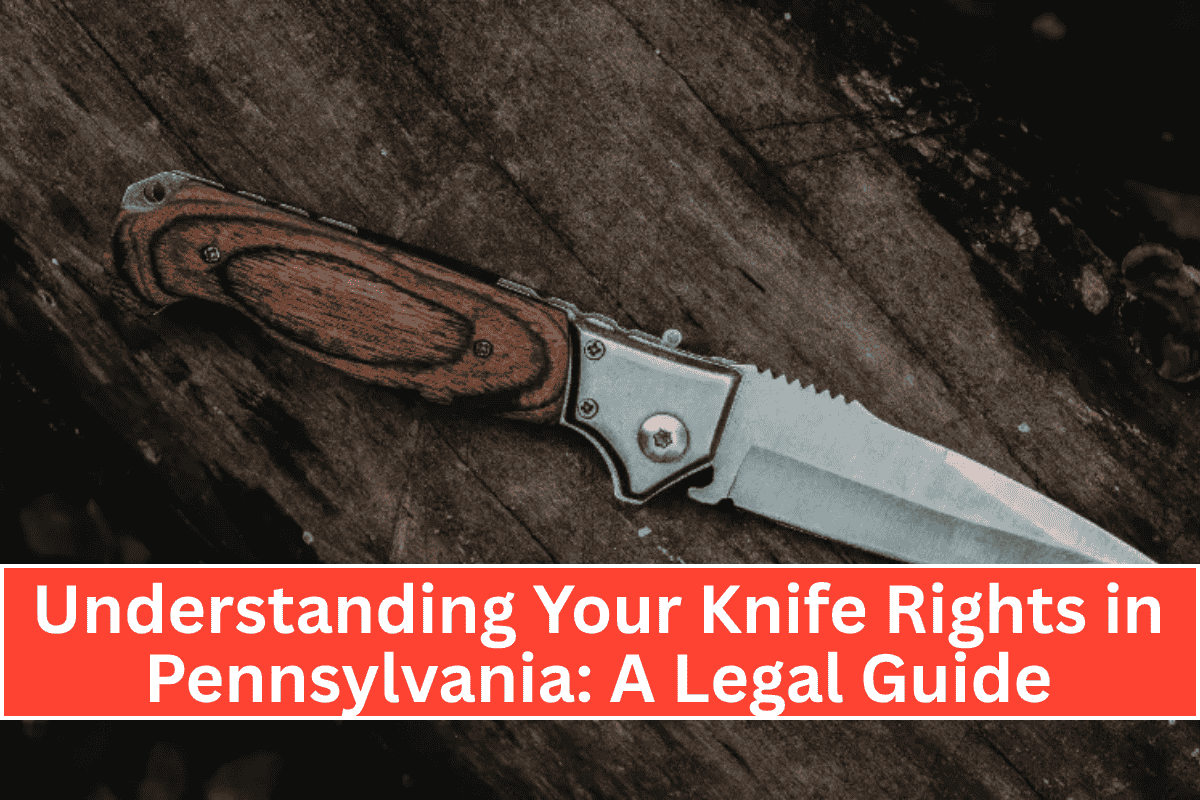Many people in Pennsylvania carry knives for outdoor activities, hobbies, or daily tasks. While knives are not as strictly controlled as guns, there are still some important rules you need to follow.
One of the biggest things to remember is that automatic knives, like switchblades, are mostly illegal to carry in Pennsylvania. These knives open with a push-button or spring, which the law considers dangerous.
But the good news is, not all knives are banned. If you’re using a knife for a legal and common reason—like camping, fishing, or crafting—you’re likely within the law. Let’s take a closer look at what’s allowed and what’s not when it comes to knife laws in Pennsylvania.
Overview of Knife Laws in Pennsylvania
If you live in or are visiting Pennsylvania, knowing the state’s knife laws is very important. While many types of knives are legal to own and use, some are classified as “offensive weapons” and are strictly banned.
The main concern is how the knife opens. Knives that open automatically (like switchblades and gravity knives) are considered dangerous and are not allowed in most situations. Understanding the rules, including the history behind them, helps you stay on the right side of the law.
Legal Definitions You Should Know
Pennsylvania law defines “offensive weapons” as tools made or used to cause serious harm. This includes switchblades and ballistic knives. These knives are illegal mostly because they open automatically, making them easier to use for violent purposes.
On the other hand, knives that require manual effort to open—like folding pocket knives—are generally legal, as long as you use them for a common and legal reason.
History Behind the Laws
The Federal Switchblade Act of 1958 banned the sale and transport of switchblades across the country. This law shaped how many states, including Pennsylvania, regulate knives. However, Pennsylvania took a more flexible approach by allowing assisted-opening knives since 2009.
These knives open with a small push but are not fully automatic. That makes them legal to own and carry if used responsibly.
What Knives Are Legal in PA?
In Pennsylvania, you are allowed to own many kinds of knives—just not the automatic ones. If your knife doesn’t open with a spring or button, chances are it’s legal.
You can legally own pocket knives, hunting knives, and even butterfly knives, as long as they’re not automatic. These knives are popular for outdoor activities, collecting, and daily use.
Special Exceptions in the Law
There’s also a special rule in Pennsylvania known as the “curio exception.” This allows people to legally own otherwise illegal knives if they are used for lawful reasons—such as being part of a collection, used in plays or film productions, or displayed as antiques.
For example, you can own a katana sword if you’re using it in a play or for display at home, but not for self-defense in public.
Knives That Are Not Allowed
Certain knives are not allowed under any condition unless they fit into a legal exception.
Automatic Knives and Switchblades
These knives open with a push-button or spring. While there have been small changes in the rules, these knives are still heavily restricted in Pennsylvania.
Gravity Knives
Gravity knives are also banned. They open by using the force of gravity or a swinging motion. Because they can be opened quickly and quietly, they are also seen as dangerous.
What Does “Offensive Weapon” Mean?
Under Pennsylvania law, any knife that is meant to cause serious harm is called an “offensive weapon.” If you’re carrying a knife, it must have a clear and legal reason—like camping or cutting things at work. If you carry a knife just for self-defense or as a weapon, it may be considered illegal.
Rules About Carrying Knives
It’s legal to carry most manual knives in Pennsylvania, but there are strict rules about where you can carry them.
Schools and Public Places
You cannot bring any kind of knife into schools, court buildings, or other government buildings. Even if your knife is legal in other places, it becomes illegal in these areas.
For Work and Fun
If you’re using a knife for work or hobbies—like a pocket knife for fishing or a hunting knife for camping—that’s usually fine. But make sure the knife is legal and that you’re carrying it for a proper reason.
What Happens If You Break the Law?
Breaking knife laws in Pennsylvania can lead to serious trouble. If you carry a banned knife or bring a knife into a restricted area, you could be arrested and have your knife taken away. The punishment depends on what kind of knife you had and where you were carrying it.
Understanding knife laws in Pennsylvania is not just for collectors or outdoor lovers—it’s for everyone. Knowing which knives are legal and where you can carry them helps keep you safe and out of trouble.
While most manual knives are allowed, automatic and gravity knives are still seen as dangerous and are tightly restricted. By following the law and using knives only for common, legal purposes, you can enjoy your tools without worry.
Always check the law if you’re unsure, especially before carrying a knife into a public or government space.












